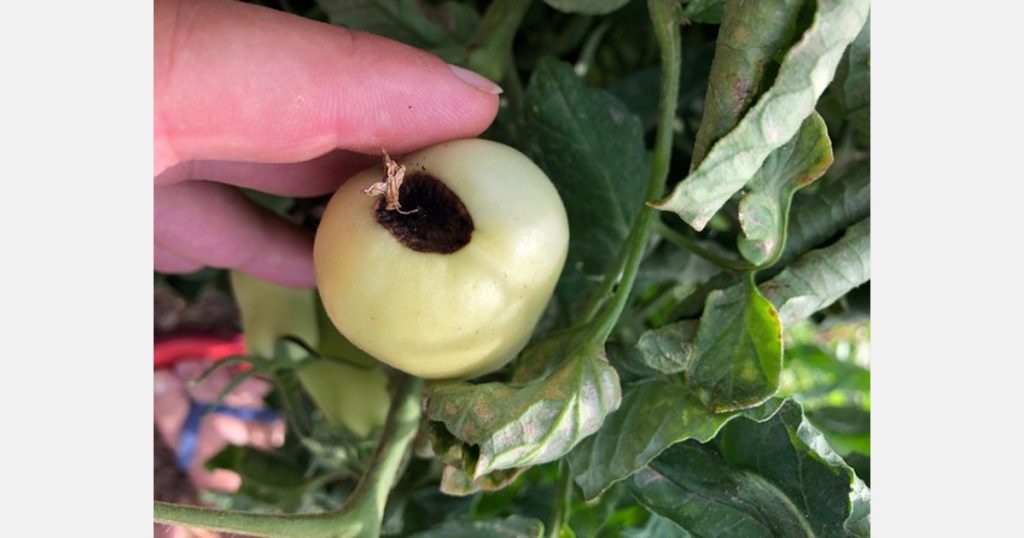The weather is extremely hot in Sardinia, with minimum and maximum temperatures higher than average and July being the hottest month of the year. “The main problem for farming is that we have suddenly gone from a cool spring to an extremely hot summer. In Sardinia, no rain has fallen in the last three months to restore the soil’s water balance, but the dams have accumulated enough water to restore the soil’s water balance. So, all in all, there are no major difficulties. We have access to water at the moment.
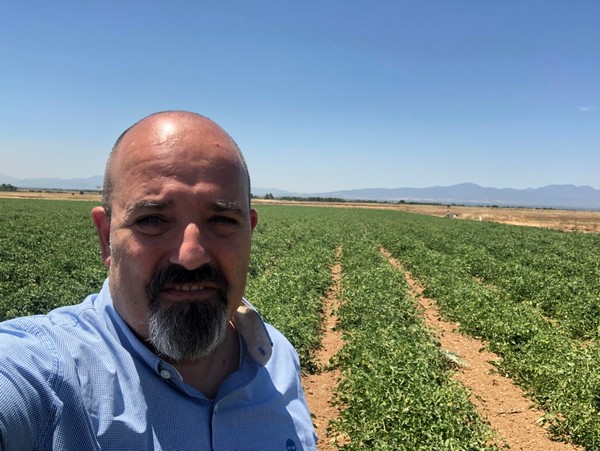
According to agronomist Orazio Casalino (pictured above), “The real problem for crops is the mix of high temperatures and hot winds, especially the Scirocco and Grecale, which together with the humidity create, for example, apical rot in tomatoes and problems for courgettes and cucumbers, which tend to curl at the ends.
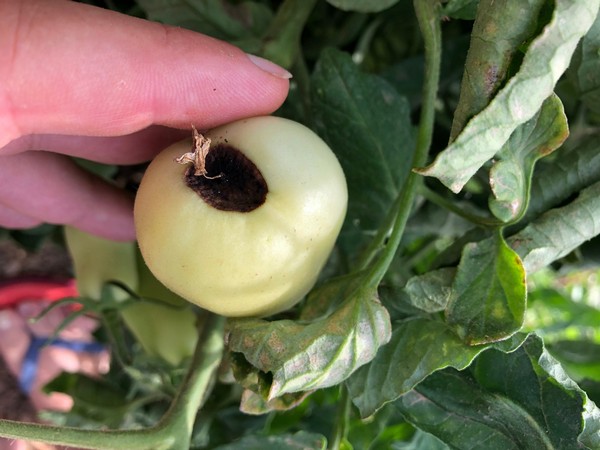 Tomatoes with apical root rot, mainly due to heat stress or an imbalance between the aerial and root systems
Tomatoes with apical root rot, mainly due to heat stress or an imbalance between the aerial and root systems
Casalino pointed out that the problem is not the varieties selected, as some growers have complained about, but rather the cultivation techniques used, which are either inadequate or not geared to the phenomena that can occur in the following months. “If soils are treated correctly during the spring period and if fertilizers or root stimulants were used to help the roots develop as much as possible, the subsequent problems linked to high temperatures would not occur or would occur in a milder form”.
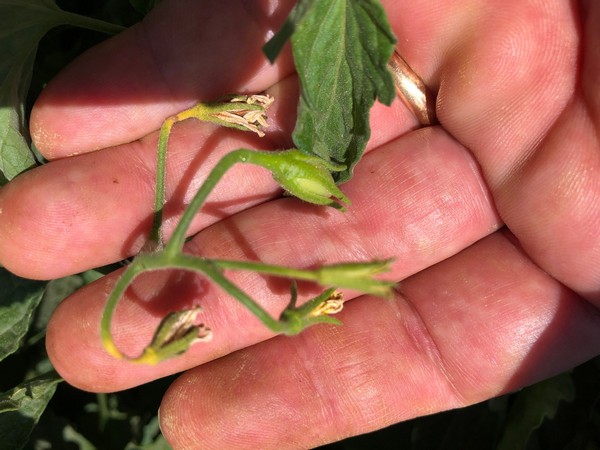 Vegetative imbalances leading the plant unable to flower
Vegetative imbalances leading the plant unable to flower
The only alternative at the moment is to reduce the temperature of the leaves, at least on the side irradiated by the sun. “There are products that can alleviate the phenomenon. Among them is kaolin, which is used to coat the aerial parts of horticultural and fruit plants. This reduces solar heating. Using foliar bio-stimulants also reduces induced stress,” continued the agronomist.
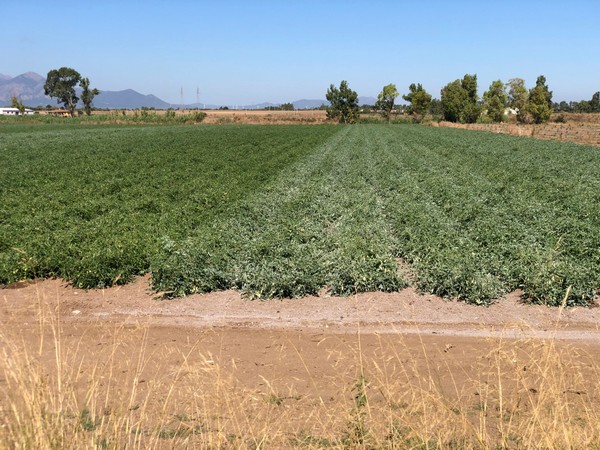 Tomatoes treated with white kaolin to reduce heat stress
Tomatoes treated with white kaolin to reduce heat stress
All the crops in the field now require a lot of water. These include tomatoes for the fresh market and industry, watermelons and melons, stone fruit, citrus fruits and vines. The latter is mainly used for wine, although in Sardinia viticulture is traditionally dry, often due to the company’s choice.
“There will certainly be a higher consumption of water for irrigation, but the positive aspect I have noticed, especially in orchards, is that we are moving away from high-consumption forms of irrigation, such as sprinklers or overhead systems, to those that reduce consumption to a minimum, such as micro-flow or drip irrigation, or sub-irrigation, through to the use of soil wetting agents that increase the retention capacity of the soil,” continued Casalino.
“Furthermore, until a few years ago, myself and other technicians recommended night-time watering. We are now watering early in the morning or at the end of a hot day, whenever possible. This is because the roots grow at night and watering at night limits their development. In addition, watering during the day prolongs the cooling effect of the night, which the plants benefit from. It is important to support the growth of the root system.
Obviously, it depends on the farm’s size, its surface area and irrigation capacity.
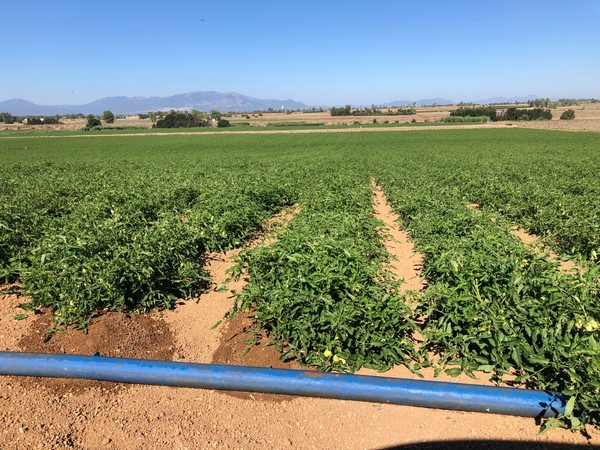 Reducing heat stress in the fields is also possible with irrigation
Reducing heat stress in the fields is also possible with irrigation
“The particularly dry year has resulted in crop treatments being reduced to a minimum, because the fruit is healthier due to a lower presence of pathogens. In addition, high quality harvests are expected in terms of both flavor and consistency, characteristics that often accompany hot agricultural years.
Casalino mentioned a project launched last year on processing tomatoes, which uses smart control units that detect climatic variables (temperature, humidity, etc.) and decide when to release water into the fields. “Last year the experiment was carried out on 8 hectares, and this year it has at least doubled. The initial results were very good, with good water savings, so we are moving ahead quickly with this project.”
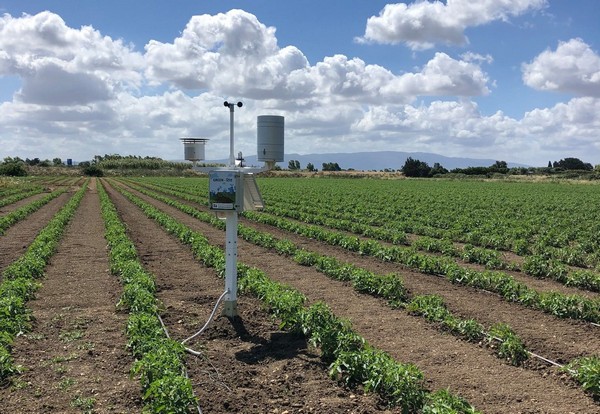
Wildfires are another critical factor during this month
The agronomist also pointed out another uncertain aspect to bear in mind in these hot months, namely wildfires.
“Only a few days ago, around 450 hectares burned in Macomer. Investigators suspect the presence of arson triggers and this really is a serious problem for farmers. It is no coincidence that last year, with the Covid-19 outbreak, there were far fewer fires, with no arsonists around,” concluded Casalino.


